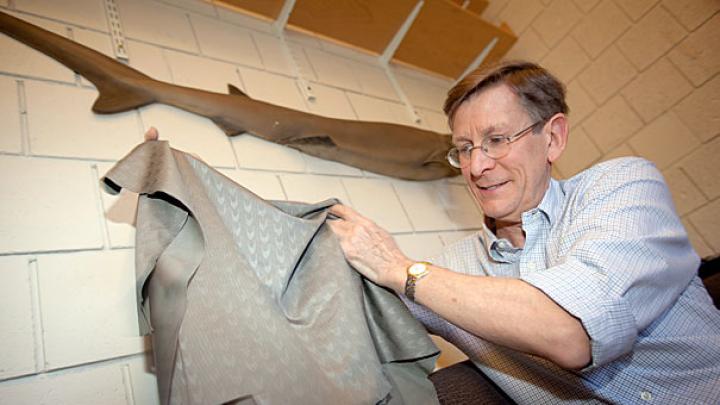In recent years competitive swimmers have donned a new generation of “sharkskin” swimwear like the Speedo Fastskin II; expect to see many such suits in the Olympic pools in London. These swimsuits claim to mimic the skin of sharks, which resembles very fine sandpaper due to millions of minuscule toothlike structures, called denticles, on the animal’s skin, which reduce drag and increase swimming speed. The bad news is that the technique works only if you’re a shark.
Research by Bigelow professor of icthyology George Lauder, published this year in the Journal of Experimental Biology and reported by the Harvard Gazette, indicates that the surface properties of the swimsuit material do not reduce drag or increase speed for human swimmers. “In fact, it’s nothing like shark skin at all,” Lauder told the Gazette. “What we have shown conclusively is that the surface properties themselves, which the manufacturer has in the past claimed to be biomimetic, don’t do anything for propulsion.”
Nonetheless, the suits have other properties that could help competitors shave down their lap times in the Olympic pool lanes. For one thing, the athletes are very tightly squeezed into the suits, streamlining their bodies. “I’m convinced they work,” Lauder says, “but it’s not because of the surface.”








